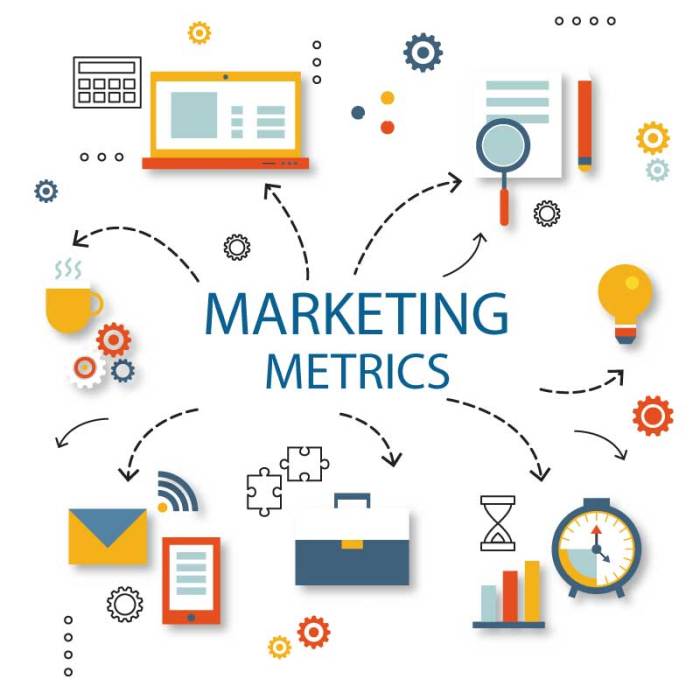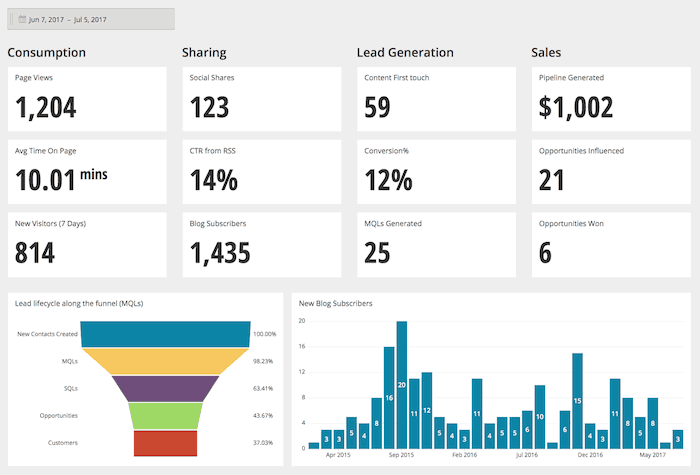Tracking Marketing Metrics Effectively kicks off our journey into the world of data-driven marketing analysis, where understanding key metrics is the key to unlocking success in the digital landscape.
From engagement to conversion, we delve into the tools, software, and best practices that will elevate your marketing strategy to new heights.
Importance of Tracking Marketing Metrics

In the fast-paced world of business, keeping track of marketing metrics is like having a secret weapon in your arsenal. It’s not just about counting numbers, it’s about understanding what those numbers mean and how they can impact your bottom line. Let’s dive into why tracking marketing metrics is absolutely crucial for any savvy business owner.
Key Metrics to Track
When it comes to tracking marketing metrics, there are a few key players that you definitely want to keep an eye on. These include:
- Conversion Rate: This metric tells you how effective your marketing efforts are at turning leads into customers.
- Customer Acquisition Cost (CAC): Knowing how much it costs to acquire a new customer can help you allocate your marketing budget more efficiently.
- Return on Investment (ROI): Understanding the return on investment from your marketing campaigns can help you identify what’s working and what’s not.
- Website Traffic: Monitoring the number of visitors to your website can give you insights into the effectiveness of your online marketing strategies.
Data-Driven Decision Making
Tracking marketing metrics isn’t just about collecting numbers – it’s about using those numbers to make informed decisions. By analyzing the data from your marketing campaigns, you can identify trends, optimize your strategies, and ultimately drive better results. It’s all about making data-driven decisions that are backed by real insights, not just gut feelings.
Types of Marketing Metrics to Track
Tracking marketing metrics is crucial for analyzing the effectiveness of marketing strategies and making informed decisions. There are different categories of marketing metrics that businesses should track to measure various aspects of their marketing performance.
Engagement Metrics
Engagement metrics measure how customers are interacting with your brand and content. This includes metrics such as likes, shares, comments, and click-through rates. Tracking engagement metrics helps businesses understand customer behavior and preferences, allowing them to tailor their marketing efforts accordingly.
Conversion Metrics
Conversion metrics track the number of leads or prospects that take a desired action, such as making a purchase or signing up for a newsletter. These metrics provide insights into the effectiveness of marketing campaigns in converting leads into customers. By tracking conversion metrics, businesses can optimize their sales funnel and improve conversion rates.
Acquisition Metrics
Acquisition metrics focus on how customers are acquired, whether through organic search, paid advertising, social media, or other channels. These metrics include metrics such as website traffic, cost per acquisition, and customer acquisition cost. By tracking acquisition metrics, businesses can identify the most effective channels for acquiring customers and allocate resources accordingly.
Collectively, tracking these different types of marketing metrics allows businesses to gain a comprehensive understanding of their marketing performance. By analyzing engagement, conversion, and acquisition metrics together, businesses can identify strengths and weaknesses in their marketing strategies and make data-driven decisions to improve overall marketing success.
Tools and Software for Tracking Marketing Metrics: Tracking Marketing Metrics Effectively

When it comes to tracking marketing metrics effectively, having the right tools and software is crucial for success. There are several popular options available that offer a range of features to help businesses monitor and analyze their marketing efforts.
Google Analytics, Tracking Marketing Metrics Effectively
- Google Analytics is a widely-used tool for tracking website traffic, user behavior, and conversions.
- Features include real-time data tracking, audience demographics, and goal tracking.
- It is a free tool with the option to upgrade to Google Analytics 360 for more advanced features.
HubSpot
- HubSpot offers a comprehensive marketing platform that includes tools for tracking website performance, email campaigns, and social media engagement.
- Features include lead tracking, customer relationship management (CRM), and marketing automation.
- HubSpot is a paid tool with different pricing tiers based on business needs and size.
Moz Pro
- Moz Pro is a popular tool that helps businesses track rankings, backlinks, and website visibility.
- Features include site audits, rank tracking, and competitive analysis.
- Pricing for Moz Pro is based on the number of campaigns and s tracked.
When choosing the right tool for tracking marketing metrics, it’s important to consider your business needs and budget. Look for tools that offer the specific features you require to measure and analyze the metrics that matter most to your marketing strategies. Consider factors like ease of use, integration with other tools, and customer support when making your decision.
Best Practices for Effective Marketing Metrics Tracking
Setting up a marketing metrics tracking system is crucial for monitoring the success of your marketing strategies. Here is a step-by-step guide to help you streamline the process and maximize your results:
Importance of Setting KPIs and Goals
- Before diving into tracking metrics, define clear Key Performance Indicators (KPIs) and goals that align with your overall business objectives.
- Establishing KPIs will provide a roadmap for what metrics to track and measure the success of your marketing efforts.
- Ensure that your goals are specific, measurable, achievable, relevant, and time-bound (SMART) to effectively track progress.
Tips for Ensuring Accuracy and Consistency
- Utilize reliable tracking tools and software to automate data collection and minimize human error.
- Regularly audit and update your tracking systems to ensure that they are capturing the most relevant and accurate data.
- Implement a standardized process for tracking metrics across all channels to maintain consistency and facilitate comparisons.
- Train your team on proper data interpretation and analysis to ensure accurate decision-making based on the metrics collected.
